Hummingbirds are fascinating creatures known for their vibrant colors and agile flight. However, like any living being, they can fall ill and require assistance. Recognizing the signs of a sick hummingbird is crucial in providing timely care and increasing their chances of recovery. In this article, we will explore eight common signs of sick hummingbird behavior and provide recommendations on what you can do to help them.
1. Visible Physical Changes
When observing hummingbirds, pay attention to any noticeable physical changes that may indicate illness:
- Feather Quality: Look for disheveled or unkempt feathers, as this can be a sign of poor health. Healthy hummingbirds have smooth, shiny, and well-groomed feathers.
- Weight Loss: If a hummingbird appears visibly thinner or has a reduced body mass, it could be a sign of an underlying health issue. Weight loss is often accompanied by decreased activity and lethargy.
- Visible Injuries: Check for any wounds, abrasions, or lacerations on the hummingbird’s body. These injuries can be caused by collisions, predator attacks, or territorial disputes.

2. Unusual Behavior
Changes in behavior can also indicate that a hummingbird is unwell:
- Reduced Activity: Sick hummingbirds may exhibit decreased energy levels and spend more time perched or resting. They may also show a lack of interest in feeding or interacting with their surroundings.
- Loss of Balance: If a hummingbird appears unsteady or has difficulty maintaining balance, it could be a sign of an underlying health issue. This can be observed during perching or while in flight.
- Uncoordinated Flight: Sick hummingbirds may exhibit erratic flight patterns, such as flying in circles or bumping into objects. Their flight may appear weaker or less controlled than usual.

3. Changes in Feeding Patterns
Altered feeding behavior is often indicative of a sick hummingbird:
- Reduced Appetite: If a hummingbird is visiting feeders less frequently or spending less time feeding, it may be a sign of illness. They may show disinterest in nectar or feed less vigorously than usual.
- Weight Fluctuations: Rapid weight loss or gain can be a sign of an underlying health issue. If you notice significant changes in a hummingbird’s weight over a short period, it is essential to monitor their condition closely.
- Regurgitation: Hummingbirds may regurgitate or vomit their food if they are unwell. If you observe this behavior, it is crucial to seek professional help as it may indicate a serious health problem.
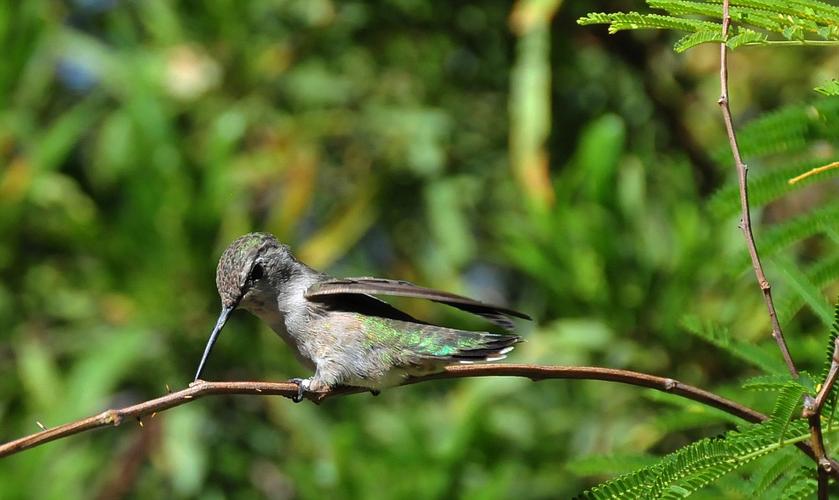
4. Respiratory Issues
Respiratory problems can manifest in several ways in sick hummingbirds:
- Labored Breathing: If a hummingbird appears to have difficulty breathing, such as rapid or shallow breaths, it is a cause for concern. Labored breathing may be accompanied by audible wheezing or coughing sounds.
- Nasal Discharge: Excessive discharge from the nostrils can indicate an infection or respiratory illness. Look for any unusual discharge around the hummingbird’s beak or nares.
- Sneezing or Gaping: Hummingbirds may exhibit sneezing or gaping behavior, where they open their beaks wide repeatedly. This can be a sign of respiratory distress or an underlying health issue.

5. Plumage Changes
Changes in the appearance of a hummingbird’s plumage can provide valuable insights into their health:
- Faded Colors: Sick hummingbirds may exhibit a dulling or fading of their vibrant plumage colors. This can be caused by nutritional deficiencies,parasites, or other health issues.
- Patchy or Missing Feathers: If you notice patches of missing feathers or bare spots on a hummingbird’s body, it could indicate a health problem. Feather loss can be caused by infections, parasites, or excessive preening due to discomfort.
- Abnormal Molting: Pay attention to any irregular molting patterns in hummingbirds. Delayed or incomplete molting can be a sign of underlying health issues.
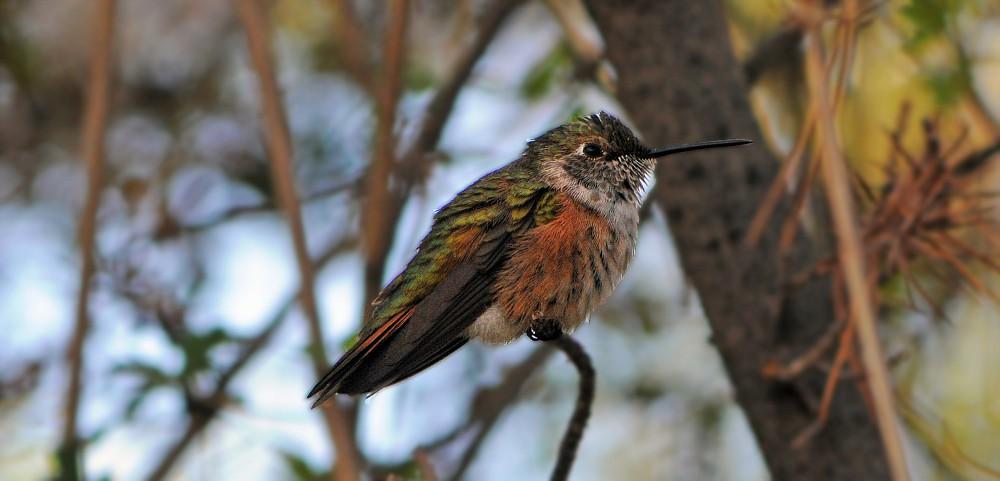
6. Lethargy and Weakness
A significant change in energy levels and overall weakness can be signs of illness in hummingbirds:
- Excessive Sleepiness: If a hummingbird appears unusually drowsy or spends extended periods in a lethargic state, it may be a sign of a health problem. Healthy hummingbirds are typically alert and active.
- Difficulty Flying: Sick hummingbirds may struggle with flying or exhibit a weakened flight. They may have difficulty taking off, maintaining altitude, or flying for extended periods.
- General Weakness: If a hummingbird appears weak or unresponsive, it is crucial to provide immediate care. Weakness can be a sign of severe illness or injury.
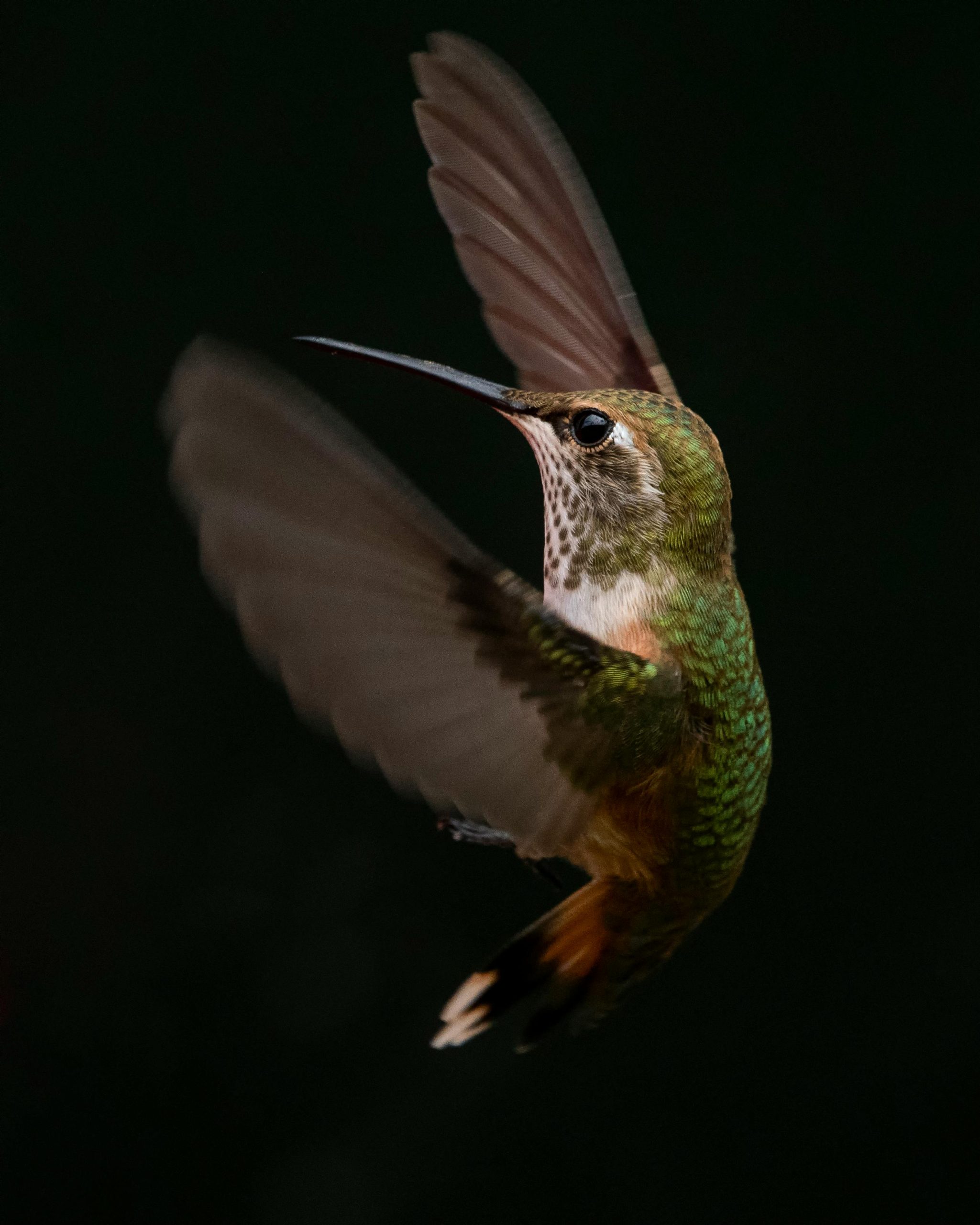
7. Aggression or Unusual Interactions
Sick hummingbirds may display aggressive or abnormal behavior towards other hummingbirds or their environment:
- Increased Aggression: Illness can lead to heightened aggression in hummingbirds. They may become territorial and exhibit aggressive behavior towards other hummingbirds, even those they previously tolerated.
- Unusual Interactions: Pay attention to any strange or out-of-character interactions the hummingbird has with its surroundings. This can include attacking inanimate objects, displaying fear or disorientation, or showing a lack of response to stimuli.
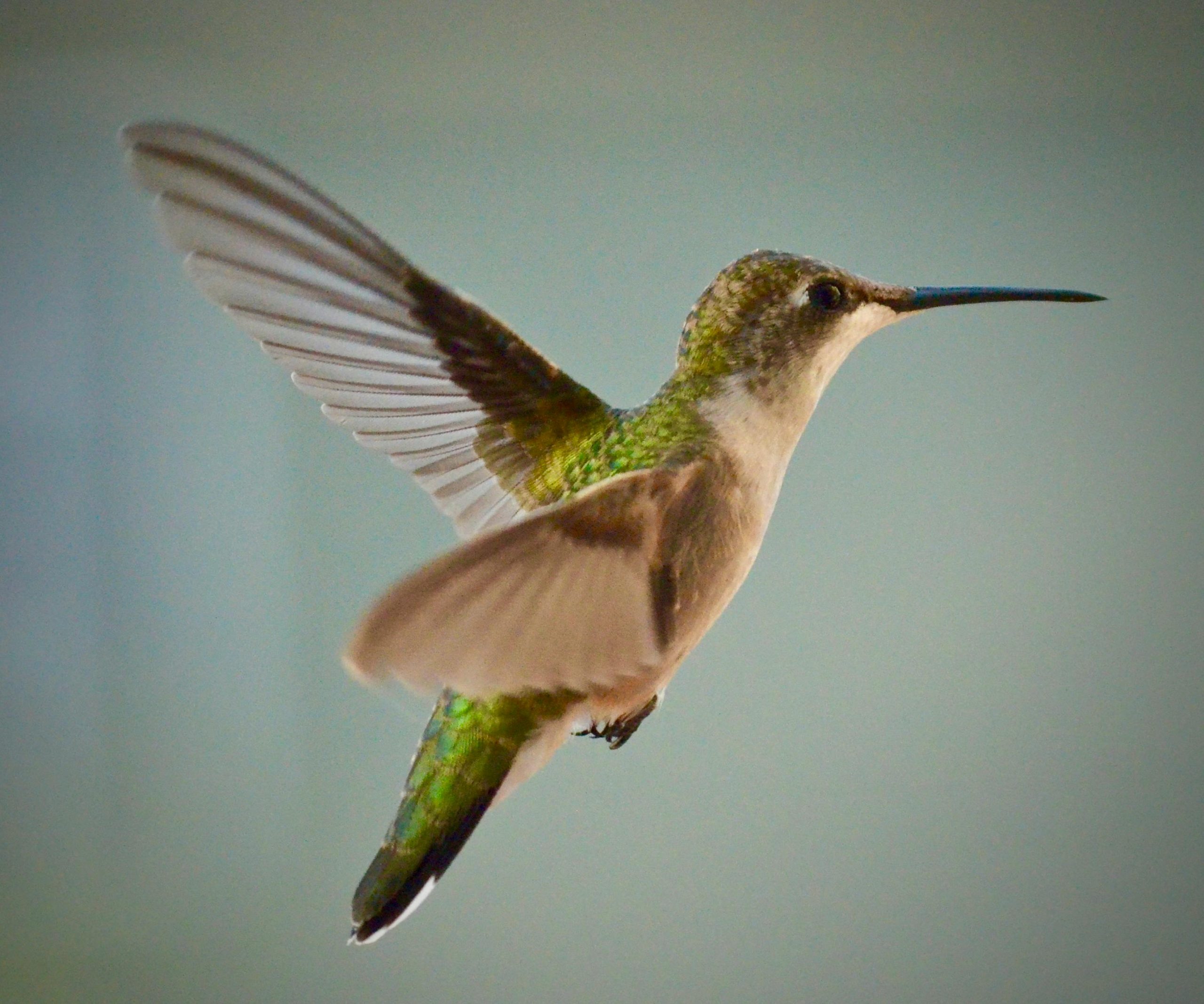
8. Seeking Shelter
Sick hummingbirds often seek shelter or attempt to hide from view:
- Choosing Unusual Perches: If a hummingbird consistently selects unusual or sheltered perches, it could be a sign of illness. They may seek locations that provide protection and reduce their exposure to predators or harsh weather.
- Retreating to Hidden Areas: Sick hummingbirds may retreat to hidden or secluded areas, such as dense foliage or dark corners. This behavior allows them to conserve energy and minimize the risk of predation.
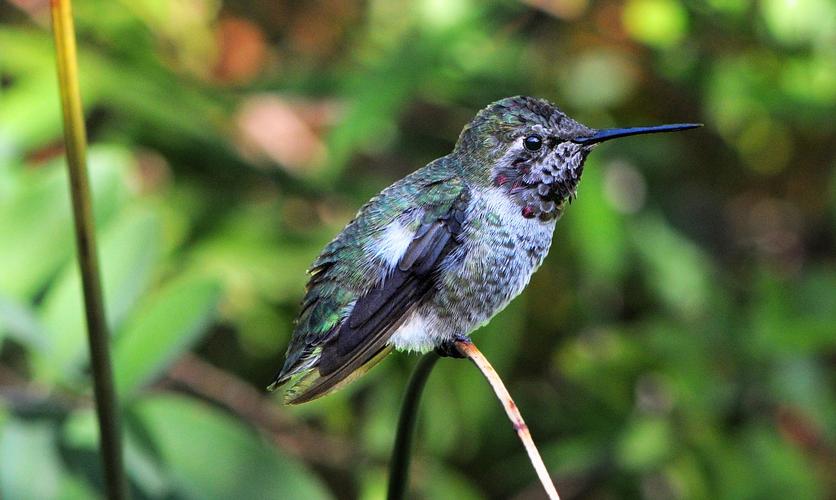
What You Can Do To Help
If you suspect a hummingbird is sick, there are several steps you can take to provide assistance:
- Contact a Wildlife Rehabilitator: Reach out to a local wildlife rehabilitator or hummingbird expert for guidance. They can assess the situation and provide appropriate advice or care.
- Provide Proper Nutrition: Ensure that feeders are clean, filled with fresh nectar, and placed in a safe and accessible location. Sick hummingbirds may require additional nutritional support, so consult with an expert for specific recommendations.
- Create a Safe Environment: Minimize potential hazards in your yard by removing pesticides, keeping pets indoors, and providing natural shelter options such as trees or bushes.
- Observe from a Distance: While it’s natural to want to monitor the hummingbird closely, it is essential to maintain a respectful distance to avoid causing additional stress or harm.
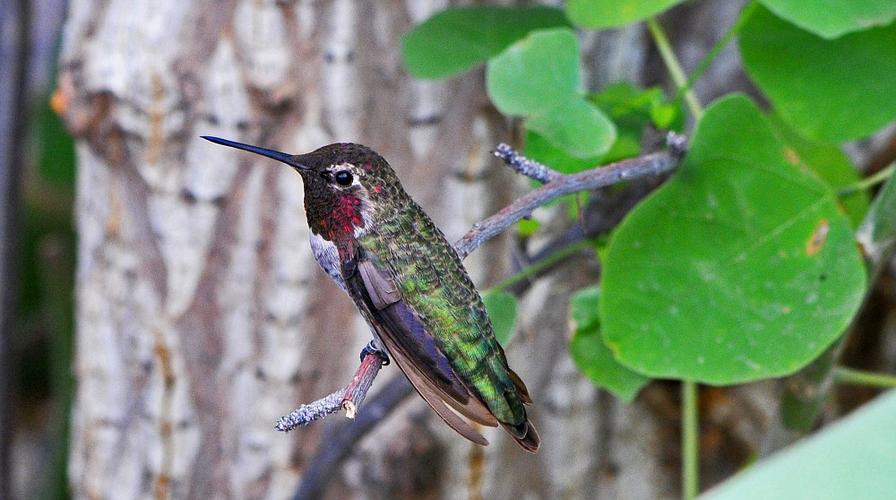
Conclusion
Recognizing the signs of a sick hummingbird and providing timely assistance can significantly improve their chances of recovery. By paying attention to their behavior, feeding patterns, physical changes, and seeking professional help when needed, you can play a crucial role in supporting these remarkable creatures. Remember, it is always best to consult with experts and wildlife rehabilitators for guidance on how to care for sick hummingbirds.




